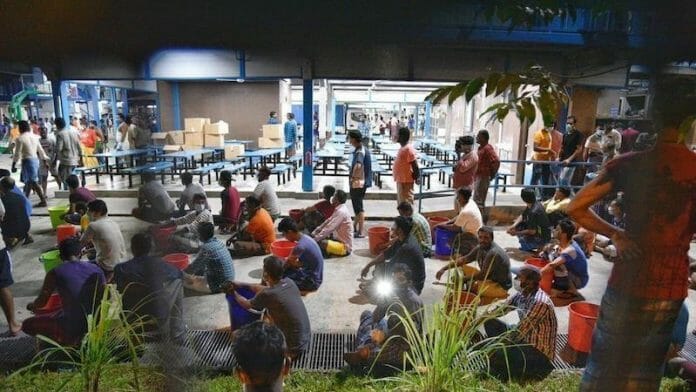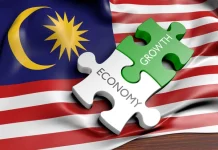By Evelyn S. Devadason
Malaysia is the second largest migrant-receiving country in the Association of Southeast Asian Nations (ASEAN), after Singapore. Based on the United Nations (UN) database, the country accounted for 28 percent of the total migrant stock in ASEAN in 2019.
Though the plight of migrant workers has constantly occupied policy debates, it continues to be entrenched in divided feelings between employers, unions and the government in relation to the economic (workers’) rights. With the outbreak of the Covid-19 pandemic and the enforcement of the movement control order (MCO) in Malaysia since March 18, 2020, migrant workers once again garner the media attention.
With no work during this MCO because of the temporary halt of jobs in most sectors, not only is the livelihood of migrants affected, but they are also struggling to meet their basic needs.
Migrants are a vulnerable group; living hand to mouth, subject to abuse and exploitation by employers, and with no or minimum social protection. They are also highly vulnerable to infections given their unsanitary living conditions. Paradoxically, the “deservingness” of migrants to decent work, healthcare facilities and safety nets have long been contested, despite their role and significance to the Malaysian economy.
First, migrants are indeed an indispensable workforce that has and continues to instrumentally contribute to the economic development of Malaysia. Representing 31 percent – 40 percent of the labour force, they work in critical sectors, such as plantation, manufacturing, construction and essential services (security and cleaning services). It is therefore no longer justified to treat and consider migrants as “disposable” workers.
The second point is linked to the first point above in that it relates to the contribution of migrant workers to economic growth through international trade. Migrant workers dominate jobs as production operators in most export-oriented and multinational companies for the trade-dependent Malaysia. More revealing is the extensive contribution of migrants during this pandemic. A case in point is that migrant workers are utilised by rubber glove manufacturers, which are permitted to operate during the lockdown with a restricted number of workers, to meet the surge in demand for medical gloves. Migrants continue to work diligently for these companies that already have a history of mistreating them. Migrants certainly deserve respect for their essential contribution during this pandemic despite the risks.
Third, Malaysia is not just a migrant-receiving country, but also a migrant-sending state. Approximately, 15 percent of the ASEAN migrants came from Malaysia based on the latest 2019 UN database. Malaysia has therefore emerged as the third largest migrant-sending country (after Myanmar and Indonesia) within the region. Migrant-sending states, on balance, are of little help to their migrant population abroad as it is difficult to influence state behaviour of host countries, even though migration is regarded a shared responsibility of receiving and sending countries. Given Malaysia’s dual (receiver and sender) contribution to migration flows within the ASEAN region, it only seems appropriate for it to integrate migrant workers into the national (financial and healthcare) policies and demonstrate a high respect for human rights.
It is even more timely now, with the battle against the Covid-19 crisis, that the relevant actors put a positive spin on their thoughts on the rights of migrants instead of challenging them. Human rights should be made available for all, leaving no one behind, including migrant workers. A rights-based approach should therefore be applied to addressing the welfare of migrants in this MCO period.
The national response during this pandemic therefore needs to consider the plight of this vulnerable group of migrants, without discrimination against both the documented and undocumented. To date, the public policy measures seem a far cry from addressing the welfare of migrants.
Social distancing, for one, is impossible for the migrant group given the congested state of their accommodation. On the contrary, this measure puts migrants at risk. It therefore comes as no surprise that almost 10 percent of the Covid-19 positive cases in the country were reported to be non-Malaysians, as at April 9, 2020.
The government must also rethink its healthcare policy to be more inclusionary. The March 23, 2020 announcement that COVID-19 tests will be made free for foreigners does not mention if it includes the undocumented migrants. The government obviously needs to take a stand on policy inclusivity. For example, Portugal has already done so by temporarily giving all migrants and asylum seekers citizenship rights, that is granting them full access to its healthcare during this Covid-19 outbreak.
The Covid-19, therefore, is seen as a major stress test for the government to respond inclusively to the human rights concerns of the vulnerable group of migrant workers.










